Die Hai-Geburtsstätte – or how to explain your thesis in your native language
Growing up in the Swiss-German-speaking part of Switzerland, you soon understand that learning other languages is key. There are only about five million Swiss-Germans, so from an early age we have to learn other languages. In school we first learn German (High German), followed by French and English. Even though I knew how important languages were, they felt like a burden and I spent considerably more time on my science classes. Consequently, my language skills were quite terrible, but this didn’t bother 18-year-old me.
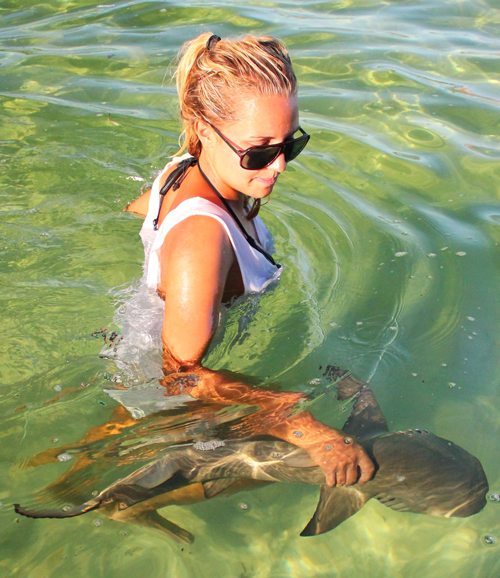
After a successful workup, Ornella releases a juvenile lemon shark back to the wild. Photo © Lanny Yu
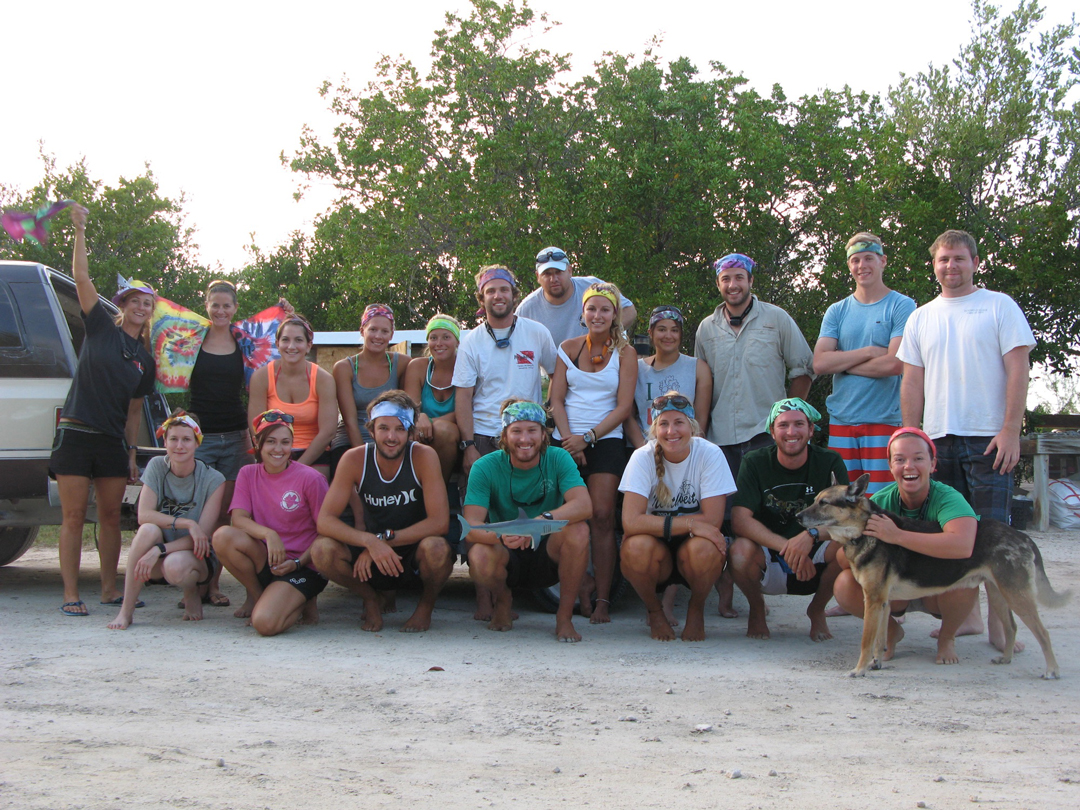
Group picture of the annual PIT census in Bimini, Bahamas. May 2011. Photo © Bimini Biological Field Station Foundation (BBFSF - SharkLab)
A few years later, English suddenly became very appealing. This surprising switch happened in 2009, while I was working at the renowned Bimini Biological Field Station (BBFS). Not only did I learn from the English-speaking staff how to communicate, read and write English at an advanced level, but I also learned numerous field-related English terms. So words like ‘shark nursery’, ‘tuna clips’, ‘gill nets’, ‘chum block’, ‘cable ties’, ‘gaff’, ‘circle hooks’, ‘q-beams’, ‘wire leader’ and ‘cinder blocks’ soon came naturally to me and every day I would learn new words and their application. These words got stuck in my head and since Switzerland is a landlocked country I didn’t dare translate any of them into German. Why should I?
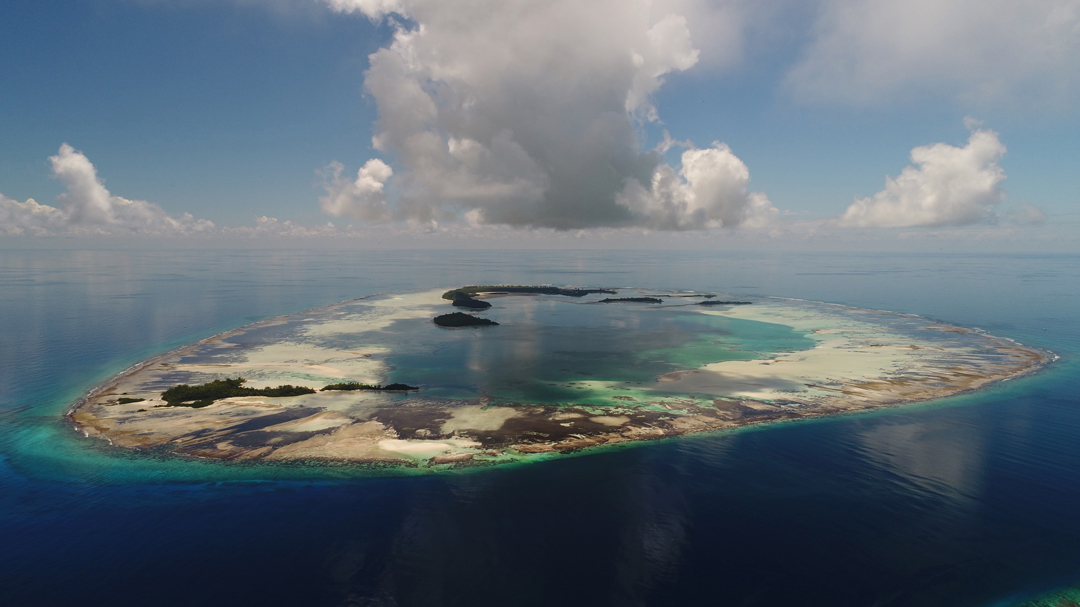
A bird’s eye view of St Joseph Atoll during the day. Photo by Michael Scholl | © Save Our Seas Foundation

St Joseph atoll with Paul island in the foreground. Photo by Michael Scholl | © Save Our Seas Foundation
Fast forward to 2017. I’m a PhD student and English is my daily and professional language. I not only speak, write and think in English, I even dream in English. This is quite normal for non-native English-speaking grad students, as English is the scientific language and we are obliged to be fluent in it. In August last year, I was contacted by the Swiss national TV (SRF) because they were interested in my work in Seychelles. After many e-mails, Skype meetings and WhatsApp calls, February 2018 approached and the SRF crew and I left for Seychelles. And that’s when it hit me. Swiss TV? Does that mean I’ll have to explain my work in Swiss-German? I freaked out… Suddenly I realised that I have no clue how to say the most basic words relating to my work in my own language! For example, what’s a shark nursery in German? Hai-Geburtsstätte? Or Hai-Kinderstube? What about a gill net? Or even worse, what are the proper German names of my two study species?
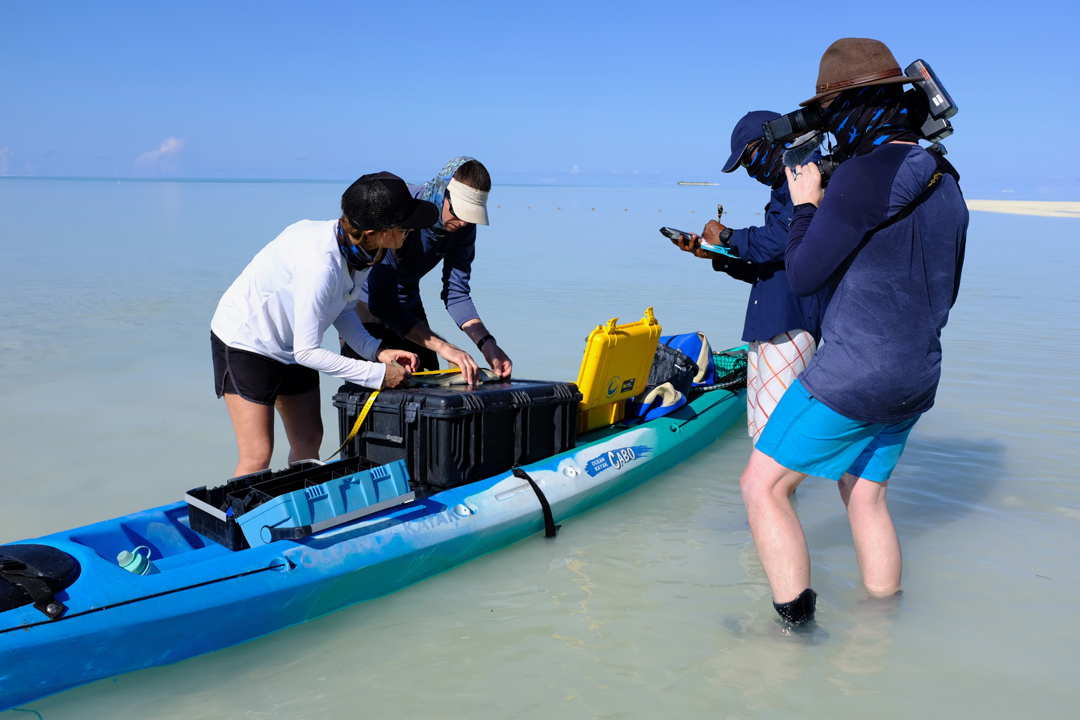
Ryan, Darnsley and Ornella collecting data from a juvenile shark. Photo Michael Scholl | © Save Our Seas Foundation
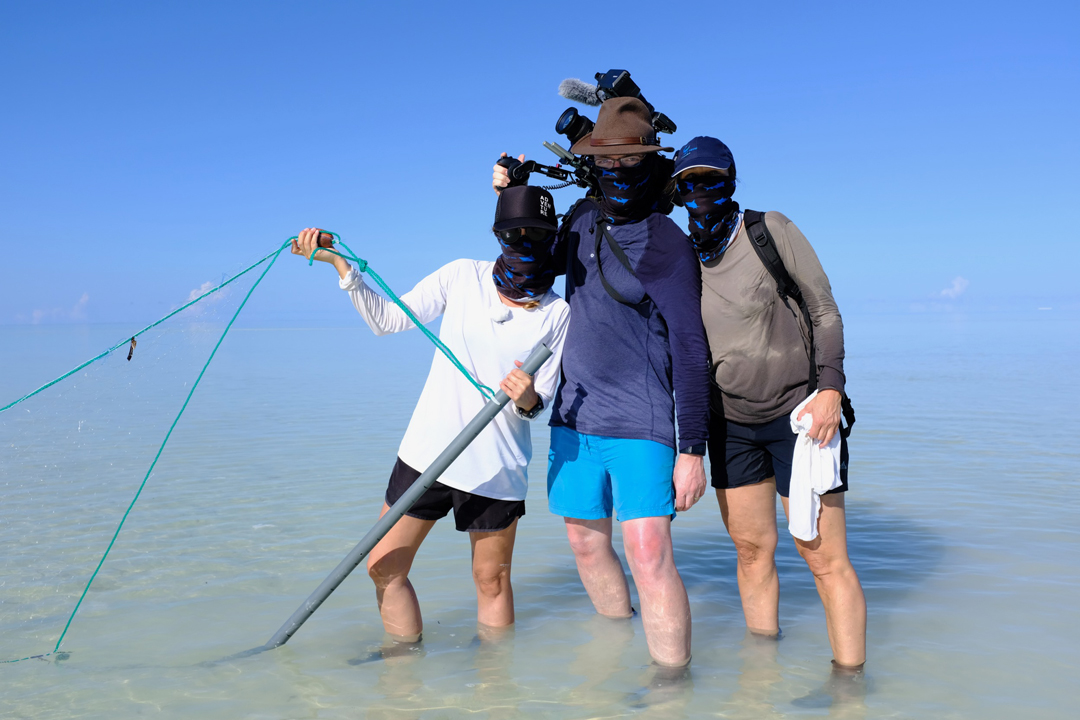
The Swiss TV crew and Ornella during their shoot in the St. Joseph atoll. Photo by Michael Scholl | © Save Our Seas Foundation

Dr. Karl Fleischmann shows Ornella the Seychellois forest he studied for many years. Photo by Michael Scholl | © Save Our Seas Foundation
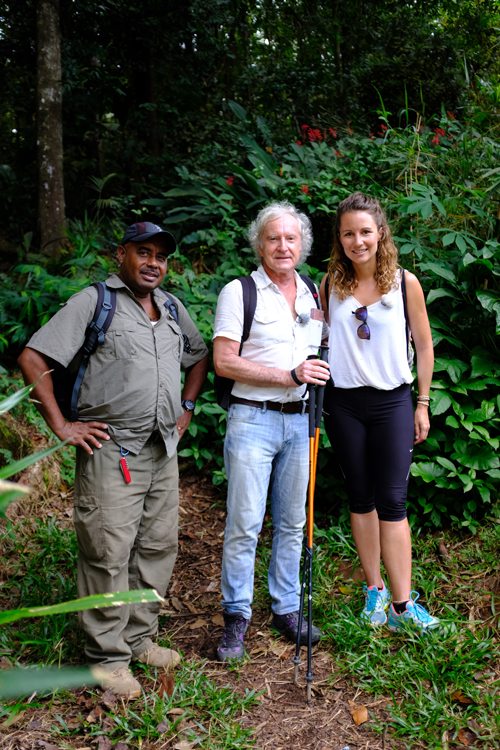
Terence Vel and Dr. Karl Fleischmann of the University of Seychelles and SOSF project leader Ornella Weideli exploring the forest on Mahé. Photo by Michael Scholl | © Save Our Seas Foundation
Luckily, I was working with the most fantastic and professional film crew, who showed great sympathy and respect for my little language issue. Every so often I had to interrupt to ask the producer or the cameraman how to say certain words, or we used handy Google to find the best ones. All in all, it was a very interesting project and I can’t wait to see the final documentary. Watching myself struggling with the most basic Swiss-German words will make me laugh out loud for sure.
